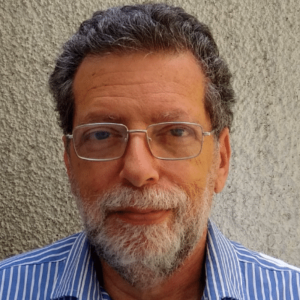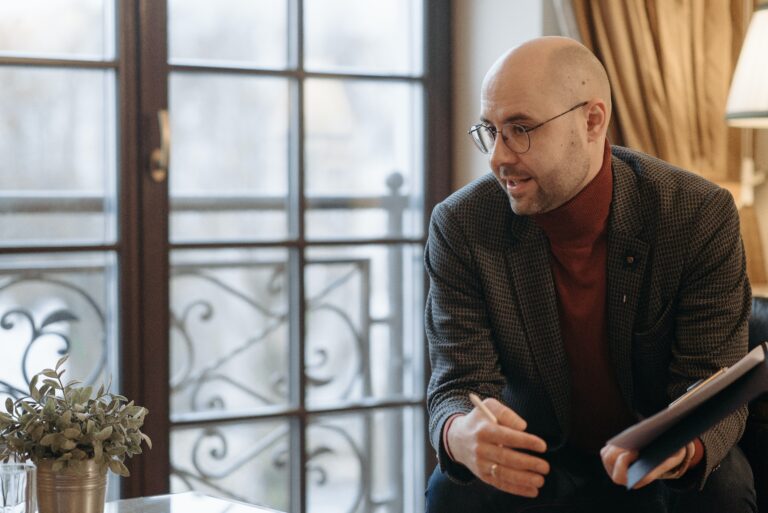Listen first
The B.A. I had taken in Psychology was primarily experimental and theoretical, not clinical. It was then, at the beginning of the Masters in Psychology that we were eager to learn how to practice psychotherapy. The very first class of the first course we had (Clinical Psychology) was definitely an eye (ear?) opener.
Prof. Josef Schubert, a wonderful teacher, came into the classroom with a tape recorder. He looked at us and without a preamble, he asked: “What brings a person to therapy?”
One student answered: “A student who moved from another city to go to university and doesn’t find himself comfortable?”
Without allowing time for anybody else to talk, Schubert asked: “What would a therapist say to such a client?”
Another student answered: “Ask him how he is adapting?”
Schubert said that we would do a role playing. He asked the two students who had answered his previous questions to come to the front and sit opposite each other, and he defined that the student who had answered the first question would be the client and the other one would be the therapist.
Schubert started the recording and let them talk for about a minute. He then asked the two participants to remain silent at the beginning of the debate, and he asked the rest of us: “What happened here?”
In retrospect, I am shy to say that we came with highly vaporous ideas about what the client was feeling, what he wanted, what he needed in reality, how good or bad the therapist had been and other comments of that sort.
Schubert raised his hand and stopped us cold. He asked again, pointing at the two empty chairs: “What happened here?” Most of us remained quiet, while some attempted even more vaporous ideas that Schubert cut short. “What did they say?” Again, he cut short those who attempted to loosely reconstruct the dialogue. “What did they say, exactly?” he asked. We knew better now, and we remained silent. Schubert reconstructed the dialogue word by word, and then he played the recording. He had not missed one word.
We were fascinated, surprised, afraid, expectant. Schubert went on to explain to us that
to listen means just that, to listen, to pay attention to everything that is said.
He then added that it is also important to take into account the tones of voice, body signals, pauses and other signals. Before dismissing us until the next class, he told us that we were going to spend the whole semester learning how to listen.
We knew that the road ahead meant lots of work, and at the same time we felt that it was a good idea to start from absolute scratch.
Born or learnt?
Many years ago, I was contacted to be one of the clinical supervisors for students at the Master for Pastoral Counselling, a career offered by a Catholic university to provide their students with tools to deal with the day-to-day events that the parishioners were facing. Many of the students were nuns or volunteers who worked in small villages or remote areas. They were the first line of support that many people sought when they needed help or comfort.
Supervision involved one whole afternoon a week working with a group of five or six students during the whole year. They had to record their sessions and bring the tapes to the supervision.
I had often asked myself whether a therapist was born or whether he had learnt the profession. As I observed during the whole year how these motivated students became very good therapists, I kept pondering about my initial dilemma.
As time went by, I realized that I could not have clear answers because I did not know with certainty what the background of the students was (definitely being willing to spend one’s life devoted to service made a person very special) but I was amazed at how people who are sensitive to others’ pain and are humble and willing to learn were able to learn several therapeutic skills in a matter of months. Those students were not interested in the degree per se. They wanted to help, and they utilized the tools at their disposal to improve their knowledge. It was heart-warming to work with them.
Like a physician or like a dentist?
For a long time I have been pondering about an issue and every so often I change my mind. Since the beginning of my career, I have been asking myself whether a psychologist should have his personal issues understood and resolved.
I recur to an analogy, granted that not a perfect one, but one that allows me to think about my initial question. The analogy is the following: if my family physician gets sick, I will want him to recover soon and to continue being my clinician. On the other hand, if my dentist smiles and I see many things in his mouth that should be fixed, but they are not, I will probably change dentists. The analogy is not tight-proof, because the health problems of my physician might be due to his negligence. It can also be said that even if my dentist were careless with his mouth, he could still be an excellent practitioner. But the analogy serves my purpose of questioning how healthy should a psychologist be.
Several times I thought that it is not necessary for a psychologist to have his issues resolved in order to be able to help his/her patients. More times I thought that s/he should.
We do not become psychologists magically. Usually our pasts have brought us to study psychology to understand, to help others, to help ourselves. So I believe that many psychologists know what pain and difficult issues are. For the last ten years or more I have been siding more with the “dentist’s” side of my analogy, that is, that psychologists could have suffered many things but that those things have to be resolved in a satisfactory fashion (I.e, there are probably scars left).
I believe that a person who underwent a successful therapy should feel alive, be able to grow, enjoy life, create, ask questions and not avoid pain. I also believe that this last statement should apply to everybody, patients and therapists alike







